The Olympic Truce
On Politics in Sport, the Olympics, and Palestine
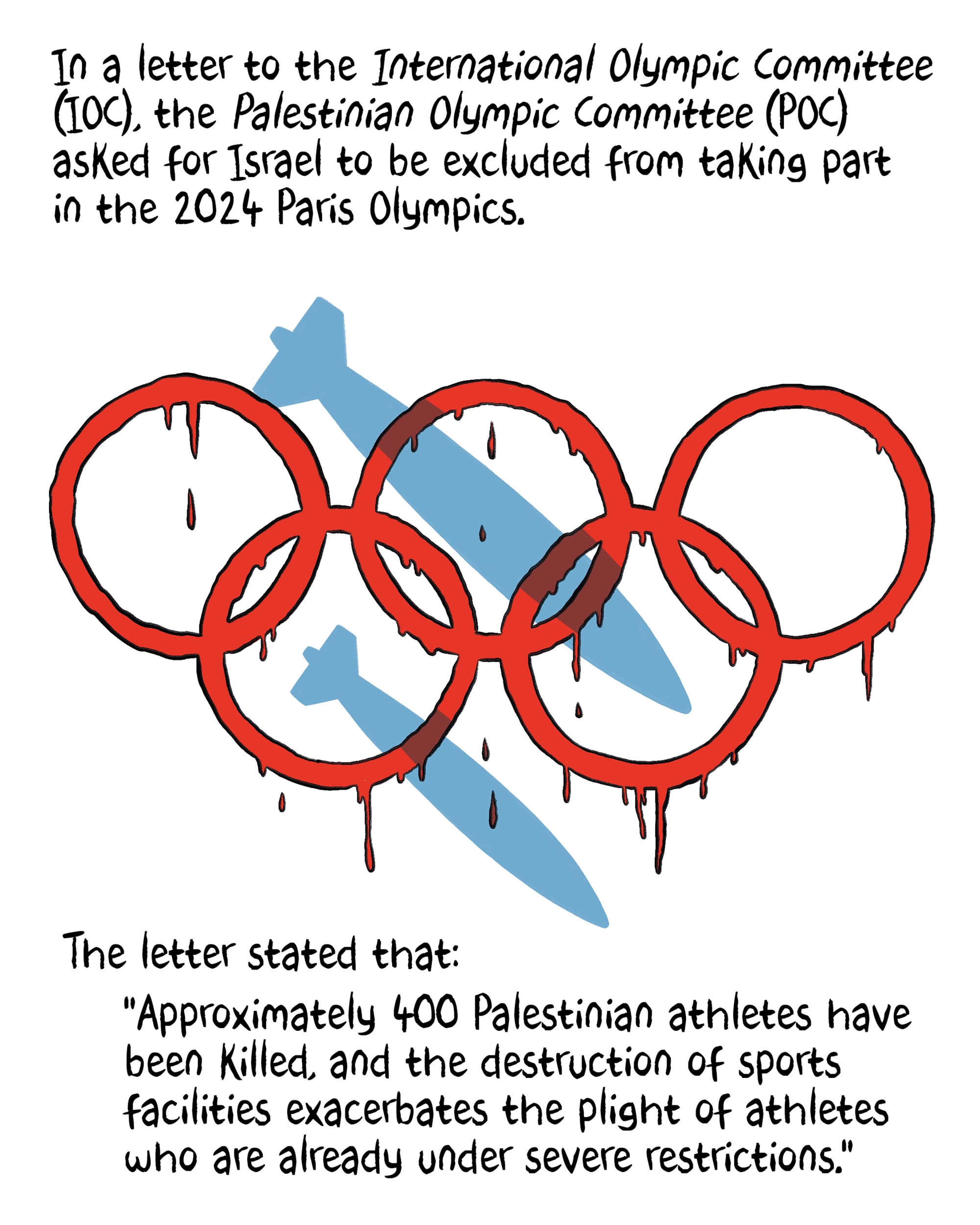
The 2024 Paris Olympic Games concluded on Sunday.
The Paralympic Games are set to begin in two weeks, on Weds 28th August.
I was commissioned by a publication to do a comic about the Paris Olympics so I pitched a comic about the eight Palestinian athletes who competed there and the approximately 400 athletes in Gaza who had been killed. It was ultimately spiked due to a policy in which freelancers are conflicted out of any reporting of Gaza if they have expressed opinions publicly on the matter.
I’m proud of the comic and think it’s worth sharing so I’ve posted it on my social media and on my website. I thought I’d share it here too in case you subscribe to my newsletter but don’t follow me anywhere else.
Each of the nine panels have been uploaded individually below and you should be able to click on each one to read them. This newsletter may be better read on a desktop than on your phone.
If you’d like to find the comic on social media, it’s on: Twitter, Instagram, Facebook, BlueSky, and Mastodon.


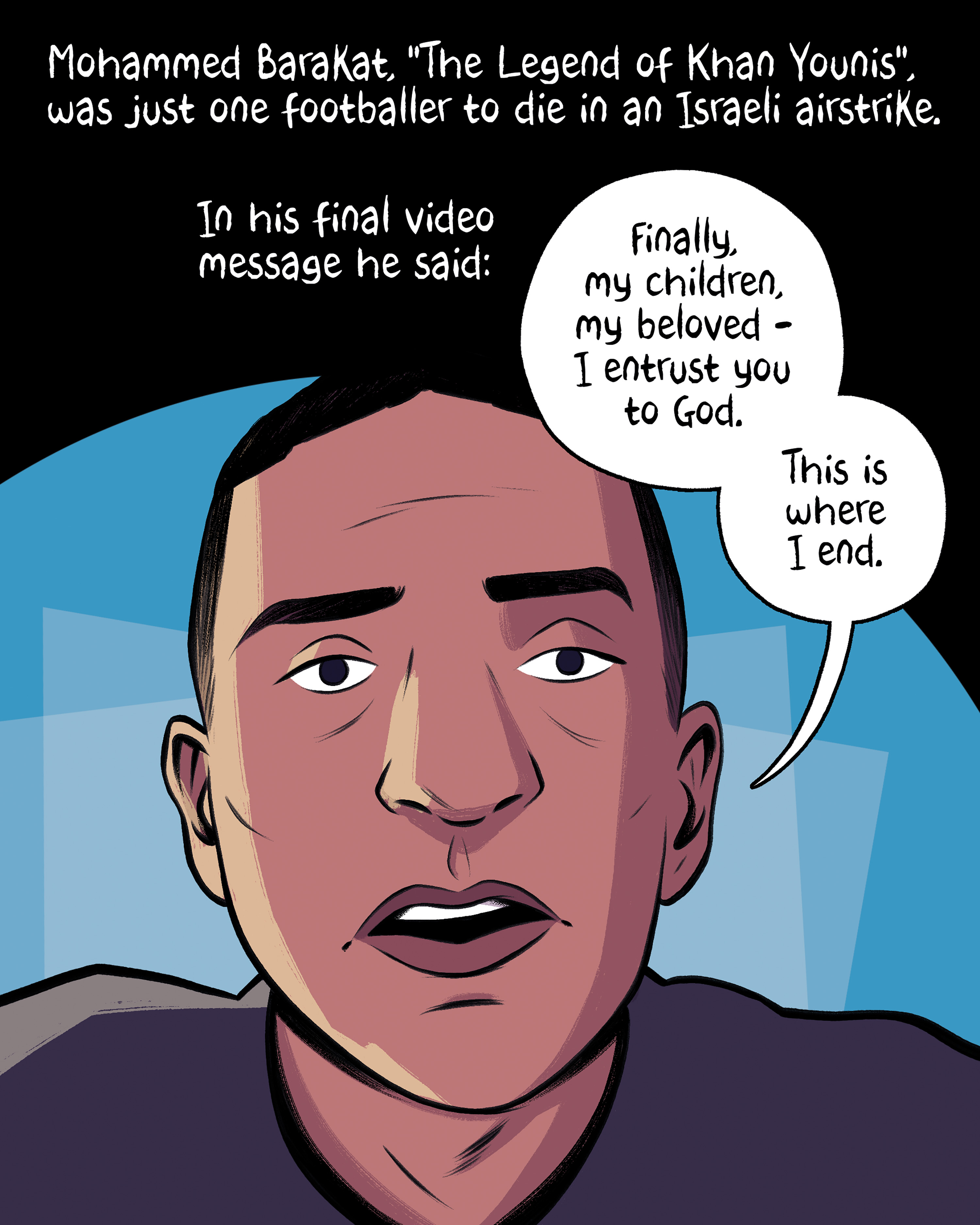
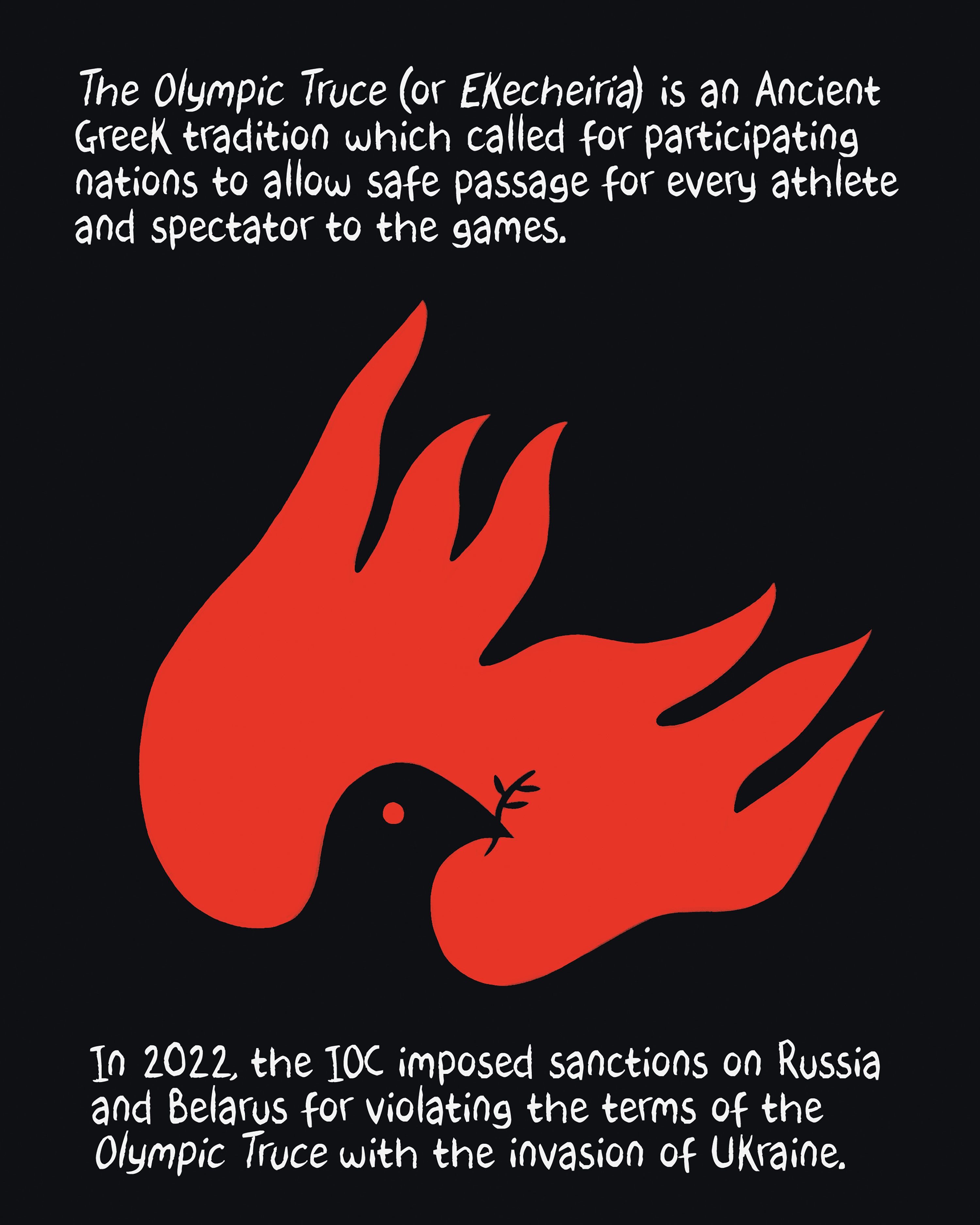
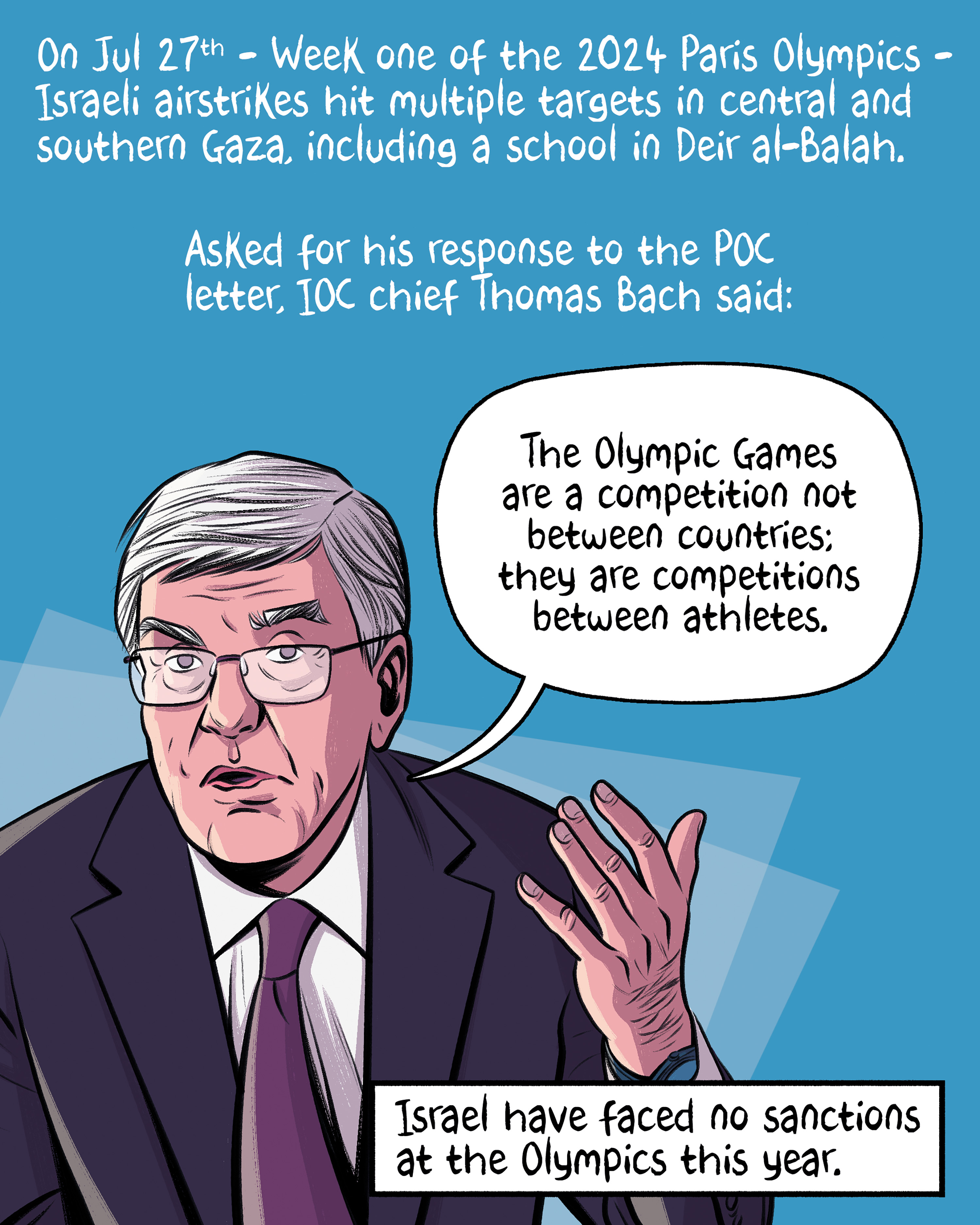
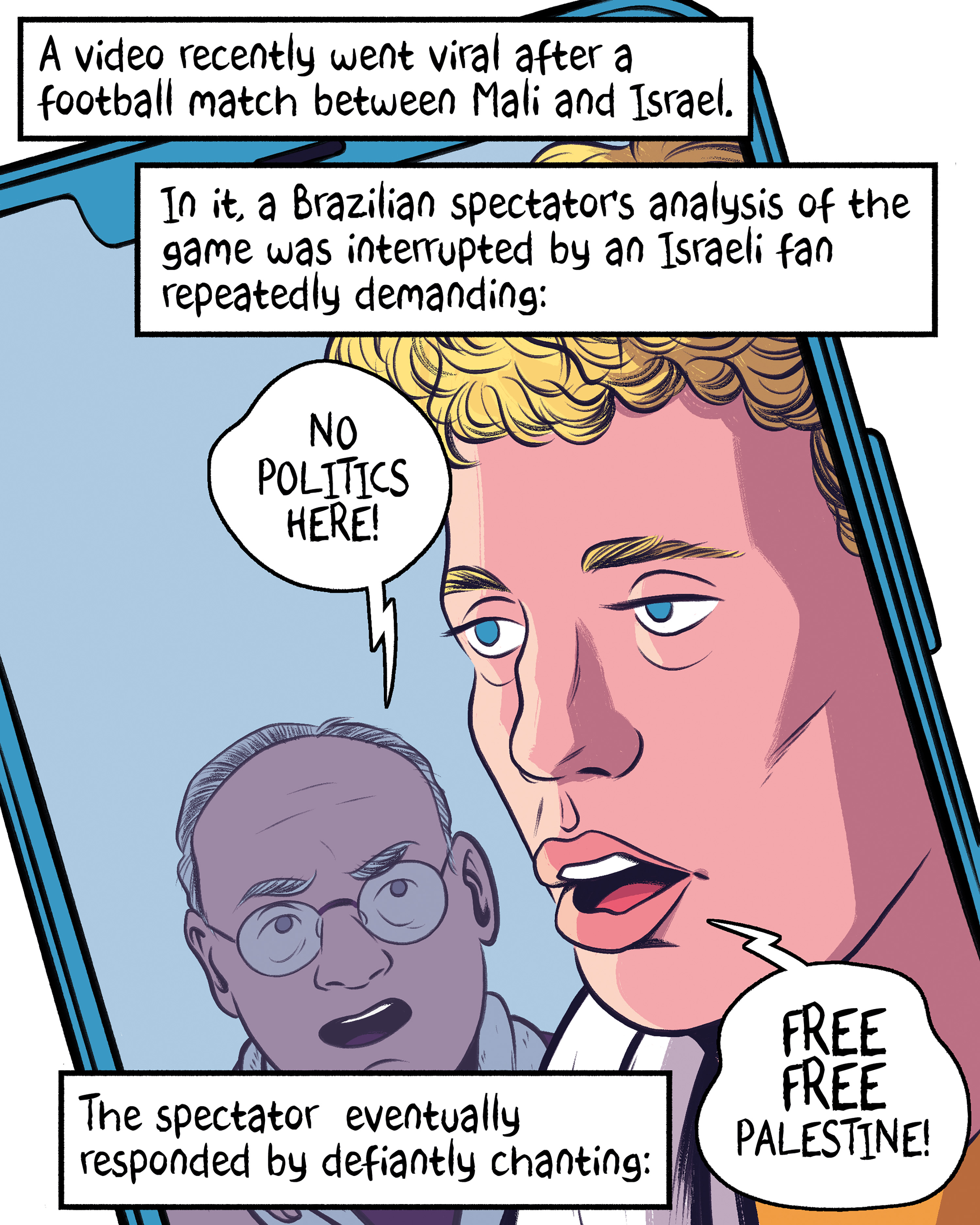
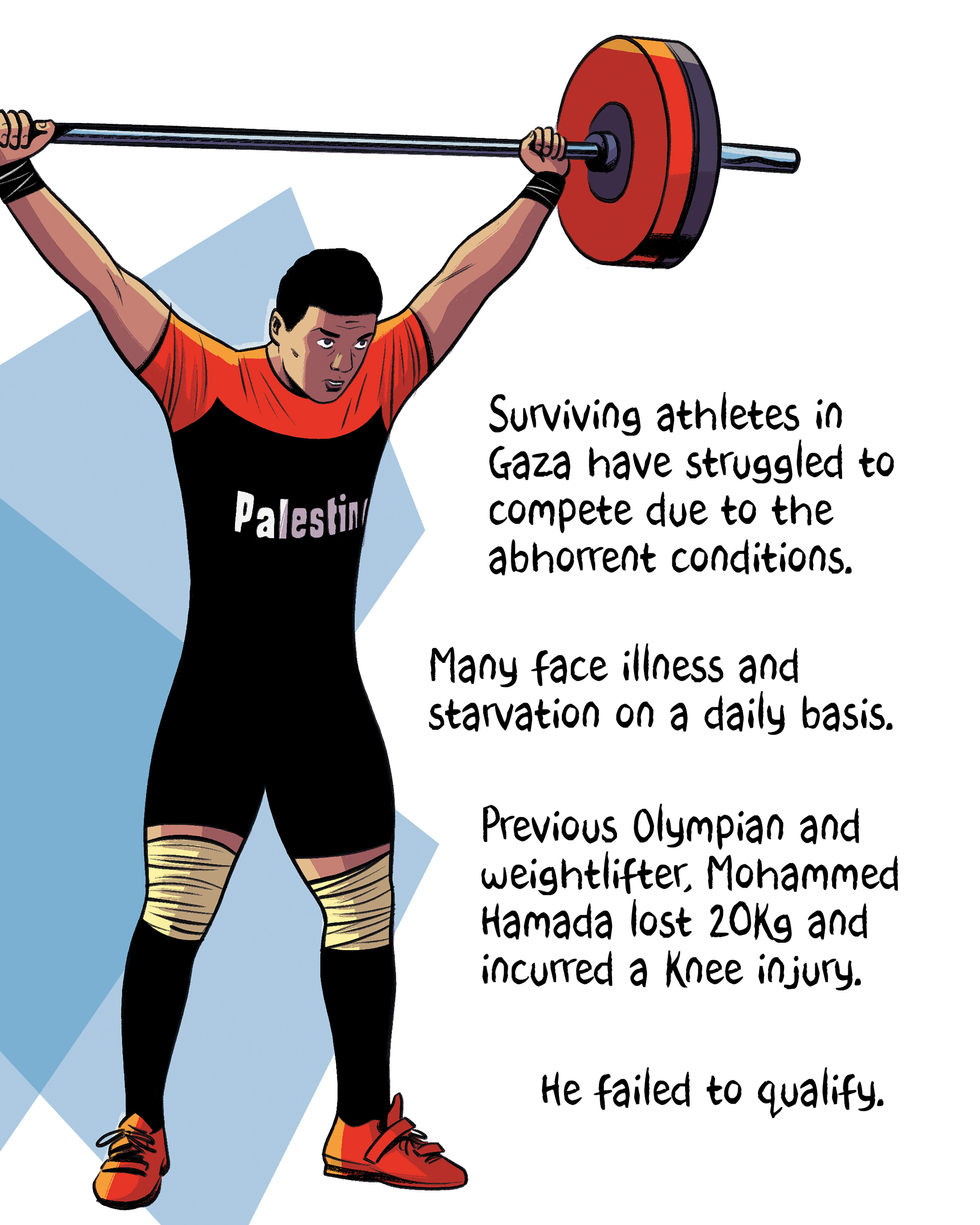
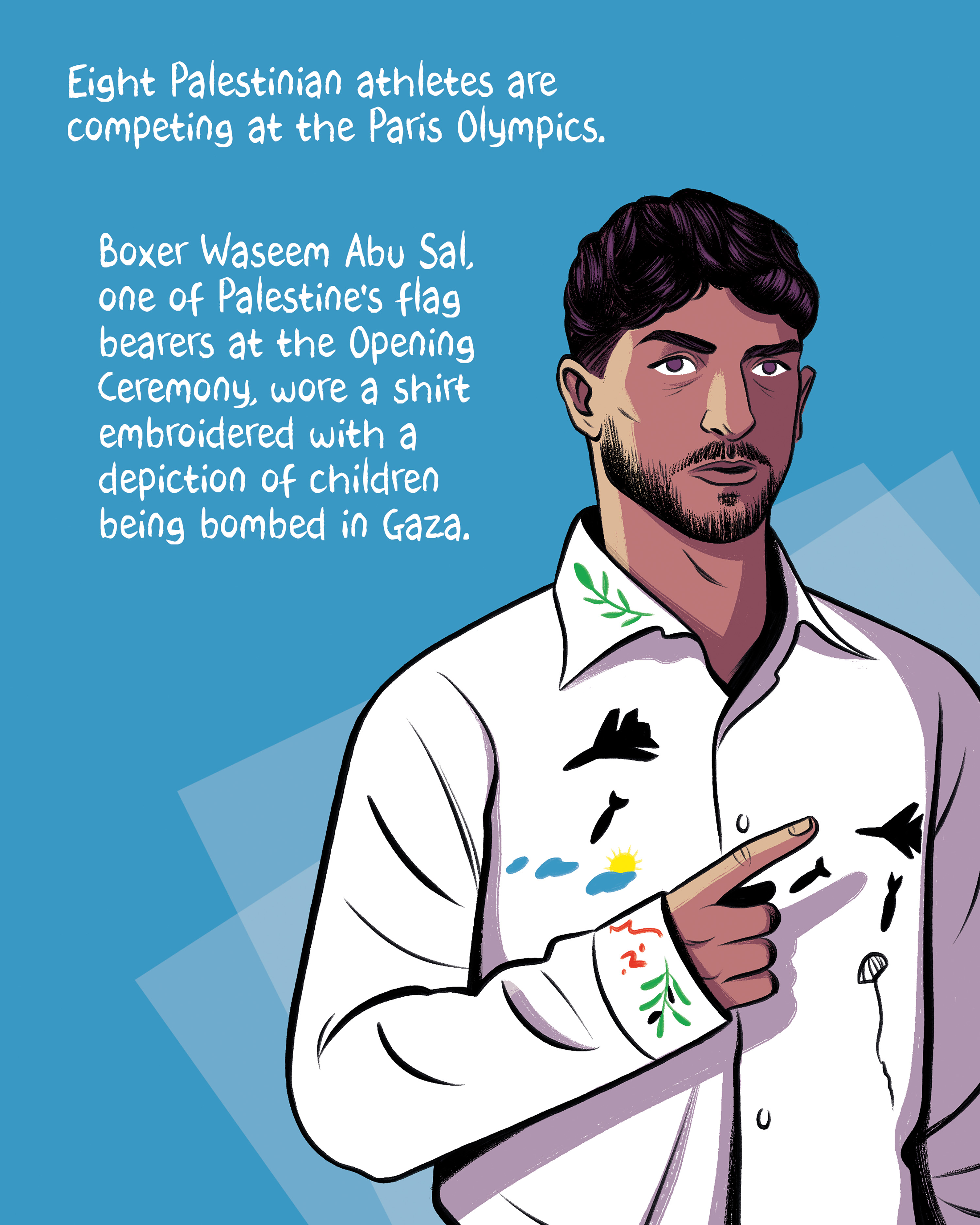
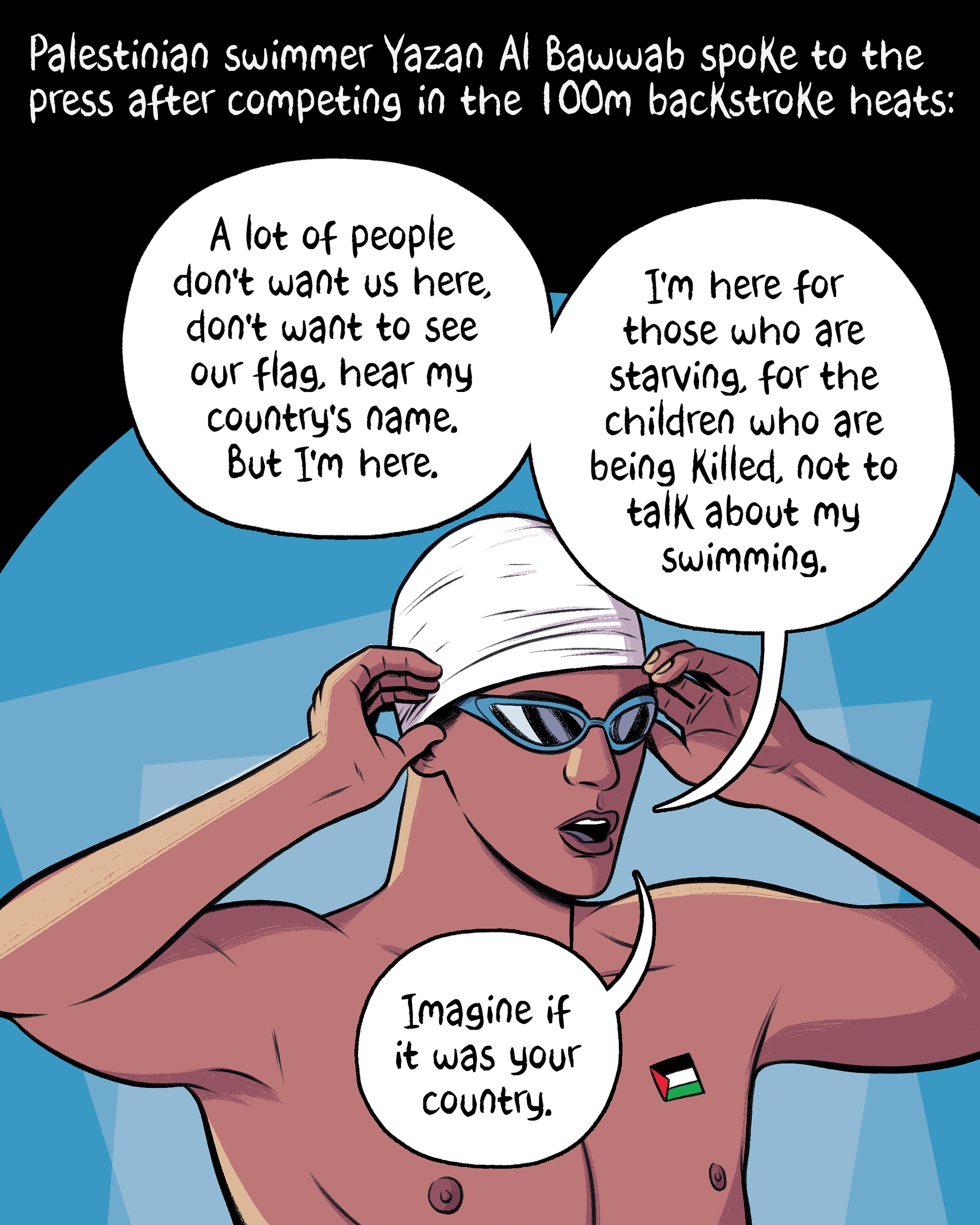
Paris Olympics [Panels 1-9]
The modern iteration of the Olympic Truce begins one week before the opening ceremony, and ends one week after the closing ceremony of the Paralympic Games. As the comic explains - in this time, no participating nation is allowed to attack the other, in order that every athlete and spectator can attend the games without impediment.
As I write this, just two days ago, Israel bombed a school in Gaza where more than 100 Palestinians were killed. Israel has still faced no sanctions by the IOC (or, more broadly, by the US or UK governments).
To be clear: as critical of the IOC and Thomas Bach as I am, I still enjoy watching the Olympics. It, as with tennis, has been a bit of a comfort watch during some tough times, and I don’t want to make anyone feel bad for getting something from it.
Making a new comic about the Olympics has been something of a trip down memory lane for me. In 2012, I made a 10 page comic for Cartoon Movement about the London 2012 Olympic Games. 2012 is now memory-holed by politicians, the media and the public as a time when Britain had come together and everything was fine, actually, thanks for asking. As the Cursed Objects podcast discusses on a great 2012 Olympics episode - that was far from the case.
My comic was made in the run-up to the event. It’s a formative piece of work for me. Originally commissioned by Matt Bors before he eventually went on to found The Nib. It attracted the attention of Daniel Trilling, writer of the excellent Bloody Nasty People (a key text for understanding the far right in the UK) and, at the time, the editor of the front section of the New Statesman. He hired me to make a weekly political cartoon for the NS every week. In the Frame ran for three years and was where I really learned a lot about writing and drawing comics on a tight deadline.
I’ve included the original London Olympics comic below. It’s interesting looking back at a comic I made 12 years ago. I think I’ve come a long way. My art and use of colour has improved but you can still see it’s by the same person. There are lot of things I’d like to change - plenty of captions I’d like to rewrite and clarify - but I’m leaving it here unedited - warts and all:
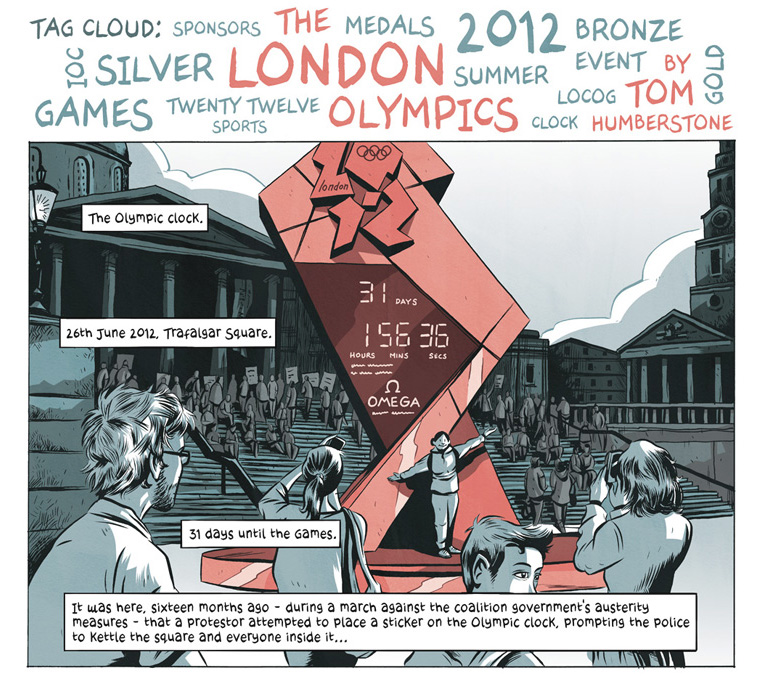
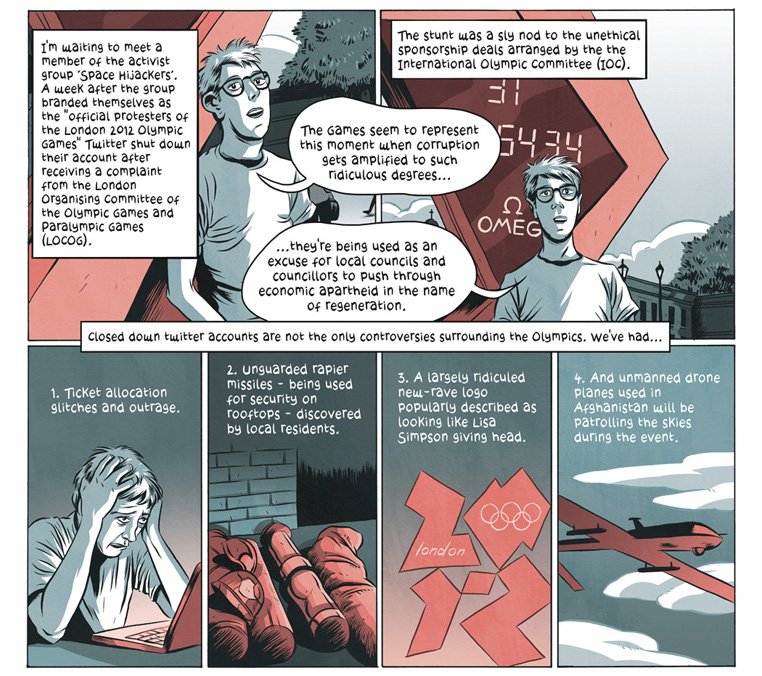
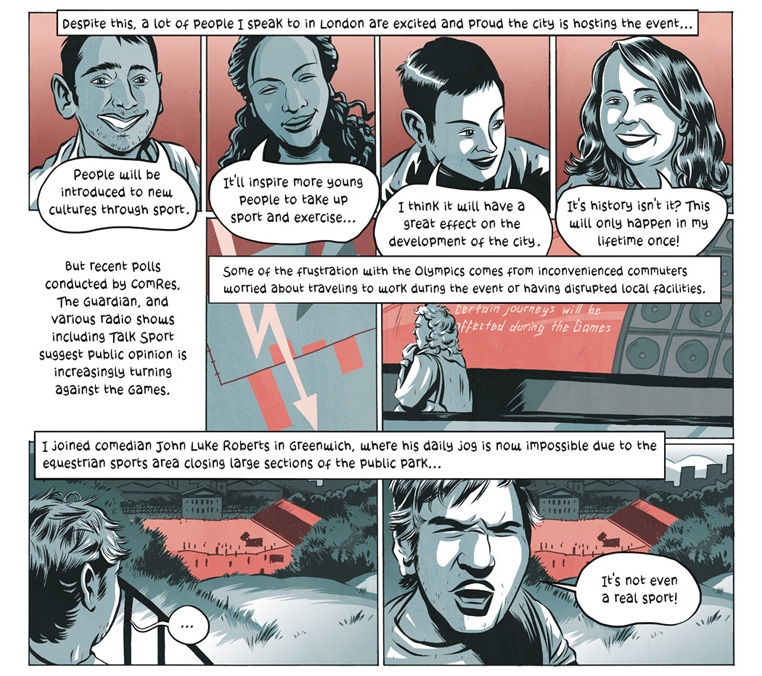
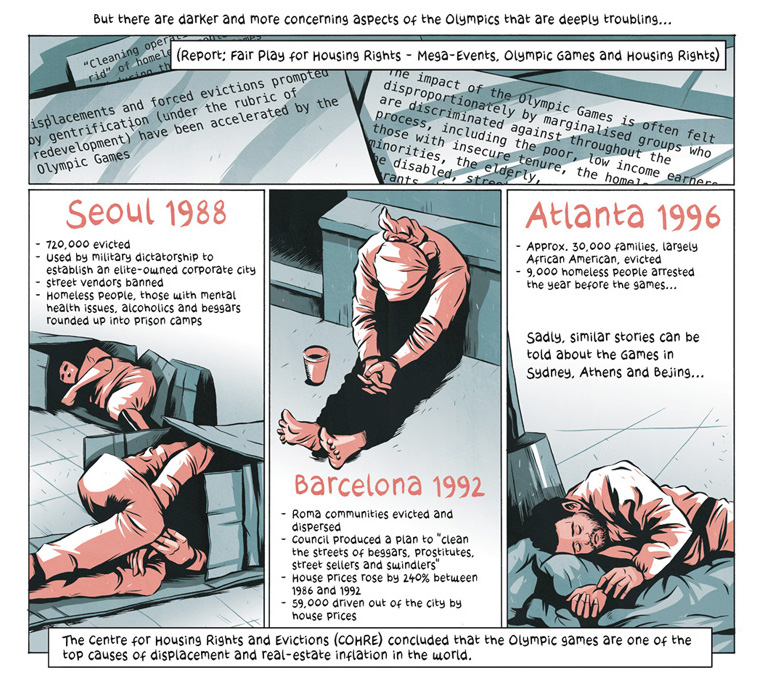

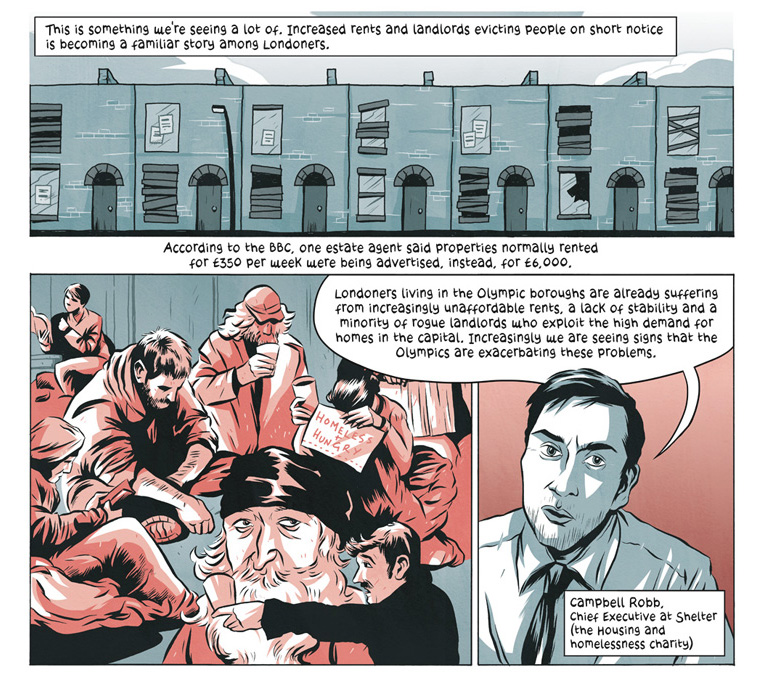
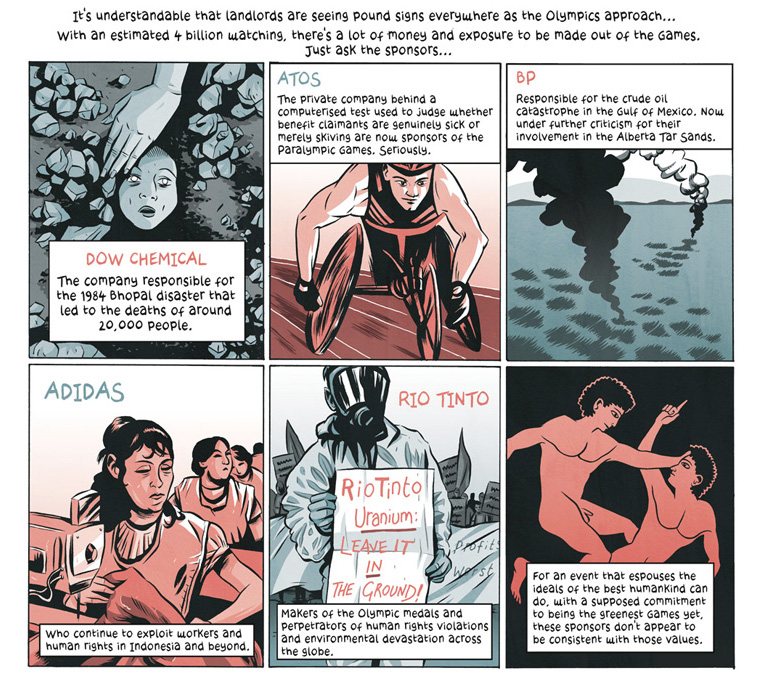
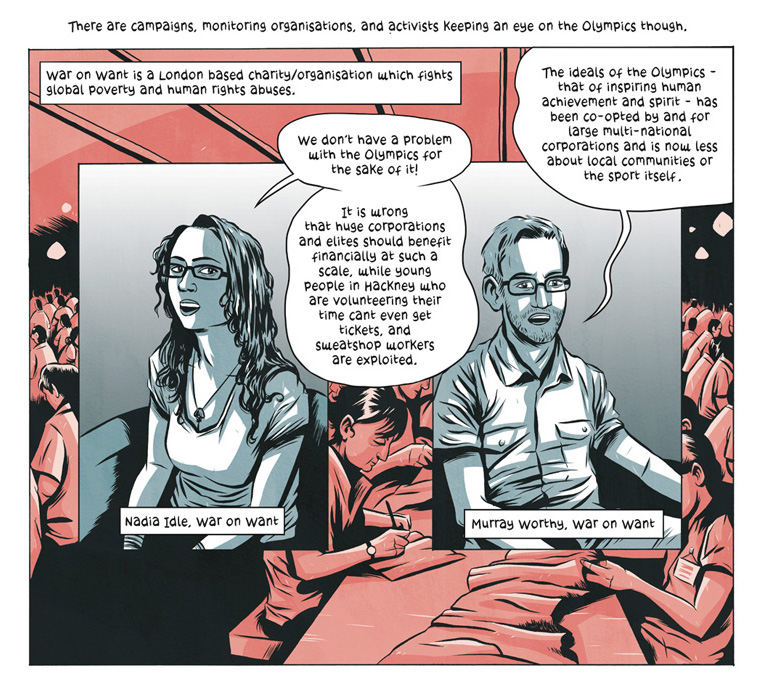
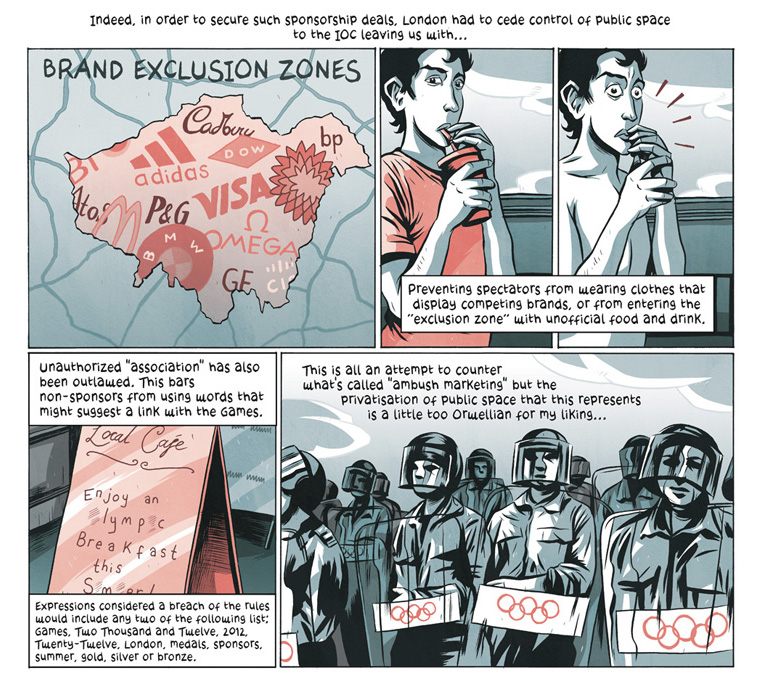
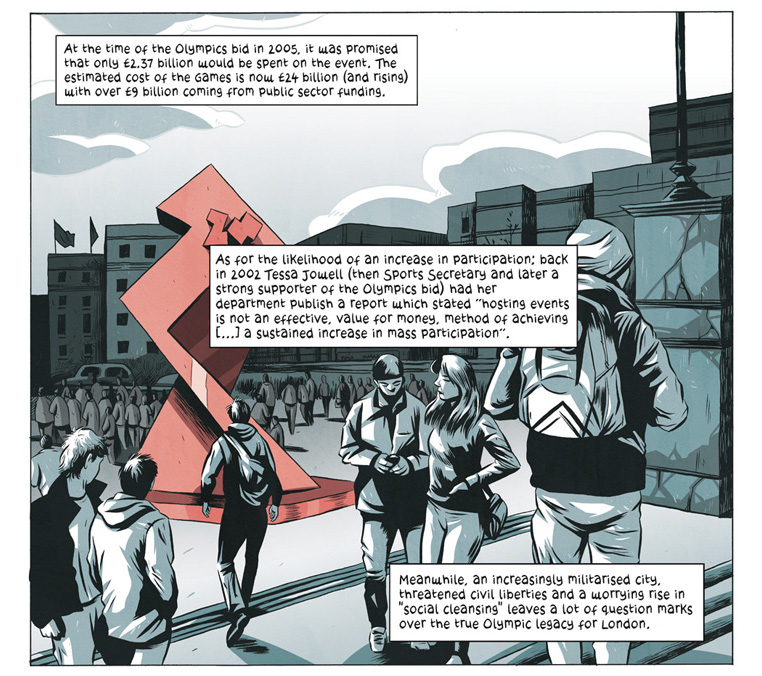
The 2012 London Olympics [Pages 2-10]
When In the Frame wrapped up, Matt Bors got back in touch to see if I wanted to contribute to The Nib. The Nib, with Matt and Eleri Harris’ expert guidance, was where I really figured out how to make the kind of non-fiction comics I wanted to read.
I made a comic about Politics in Sport for The Nib that dug back into the Olympics and the way in which politics is inextricably entwined with the Games. You can read all eight pages of it below:
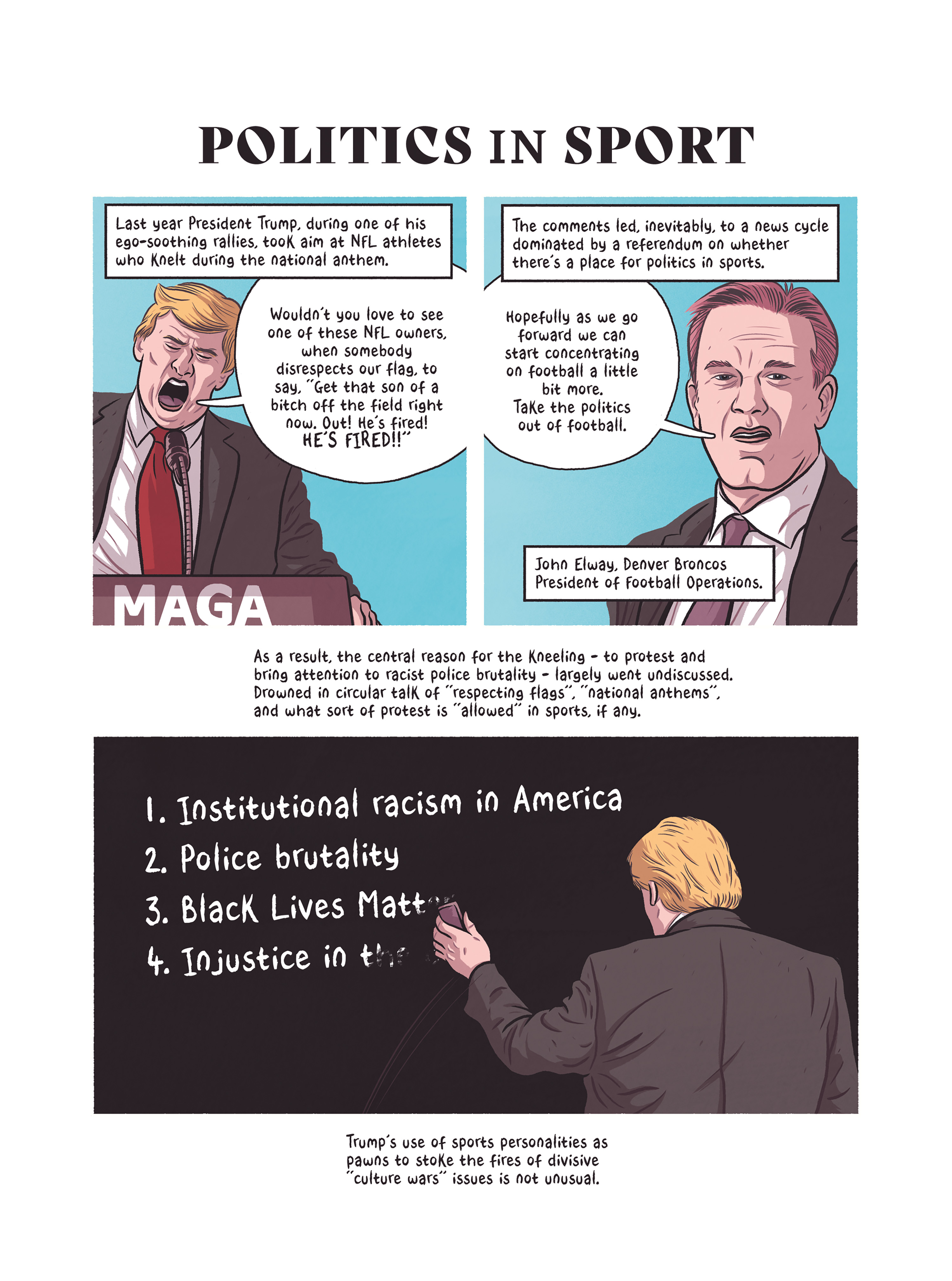
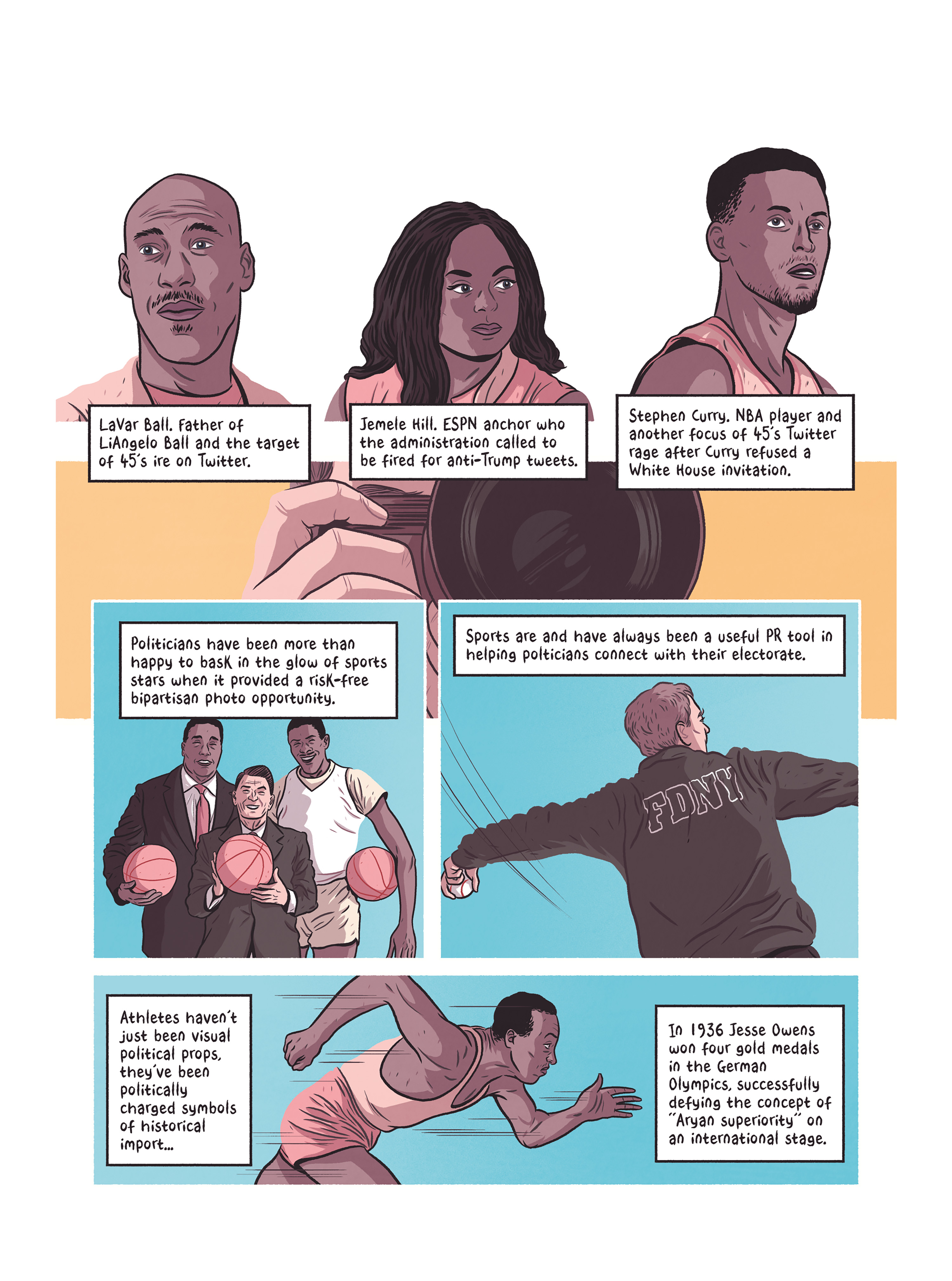


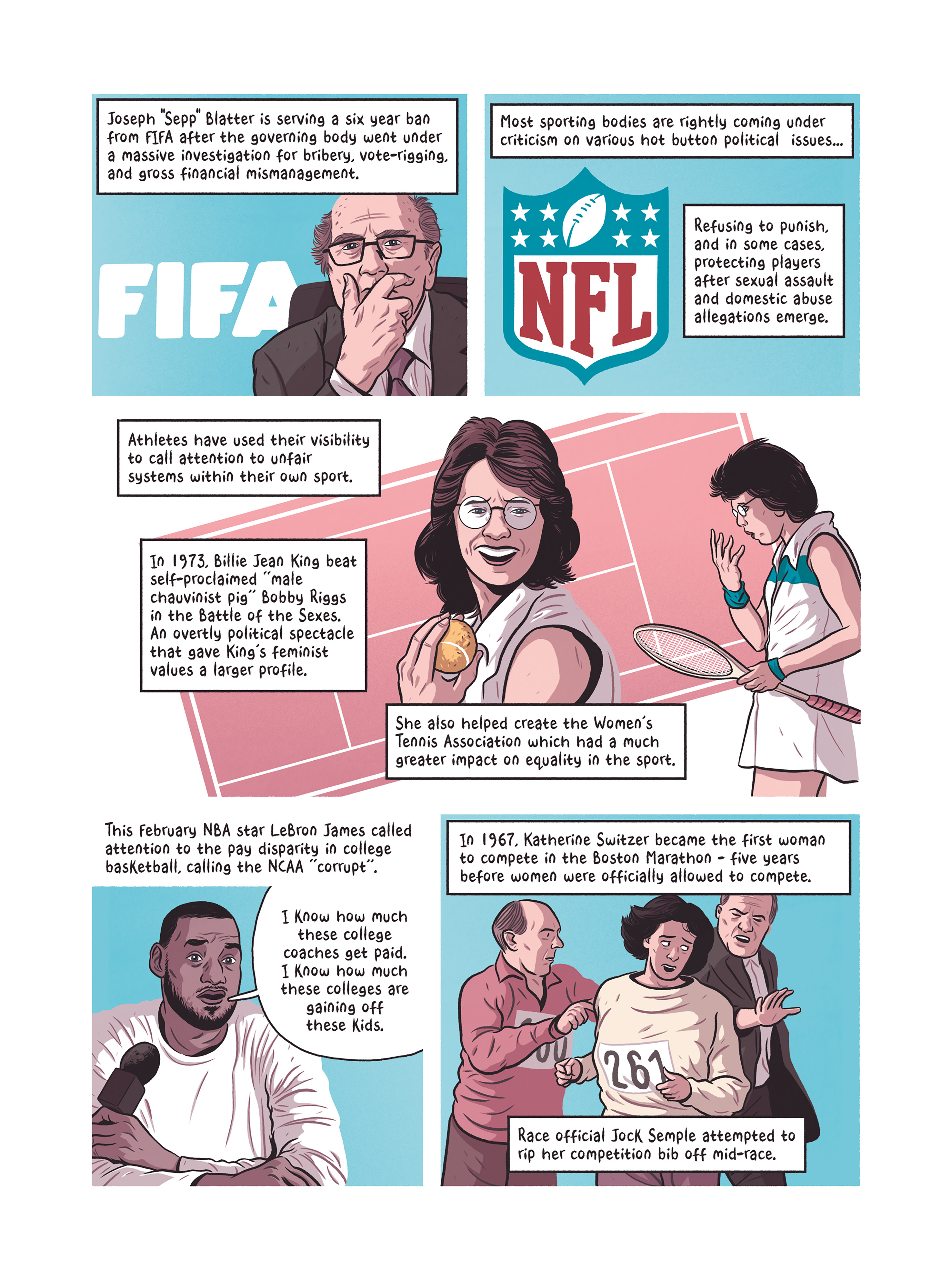
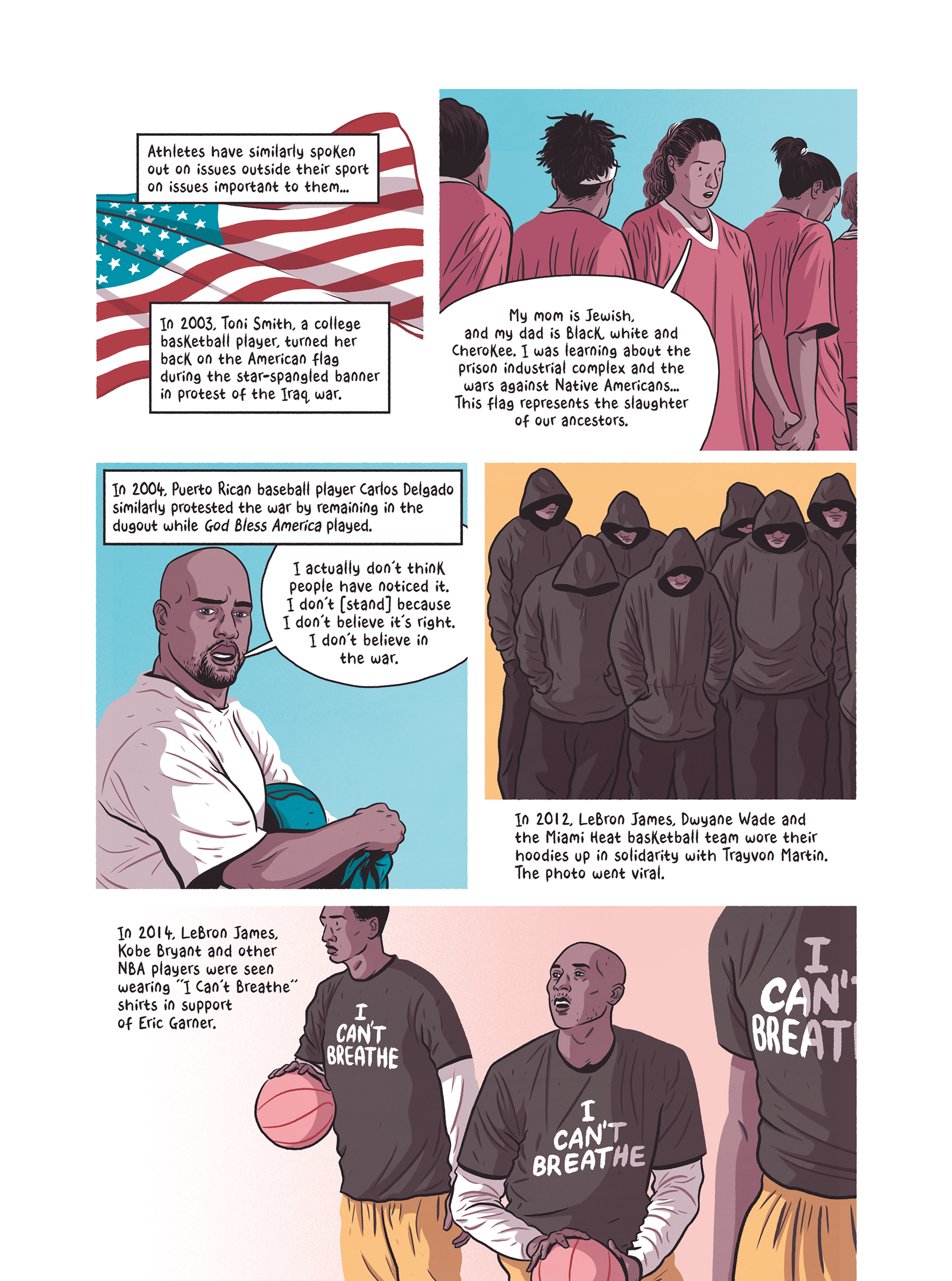
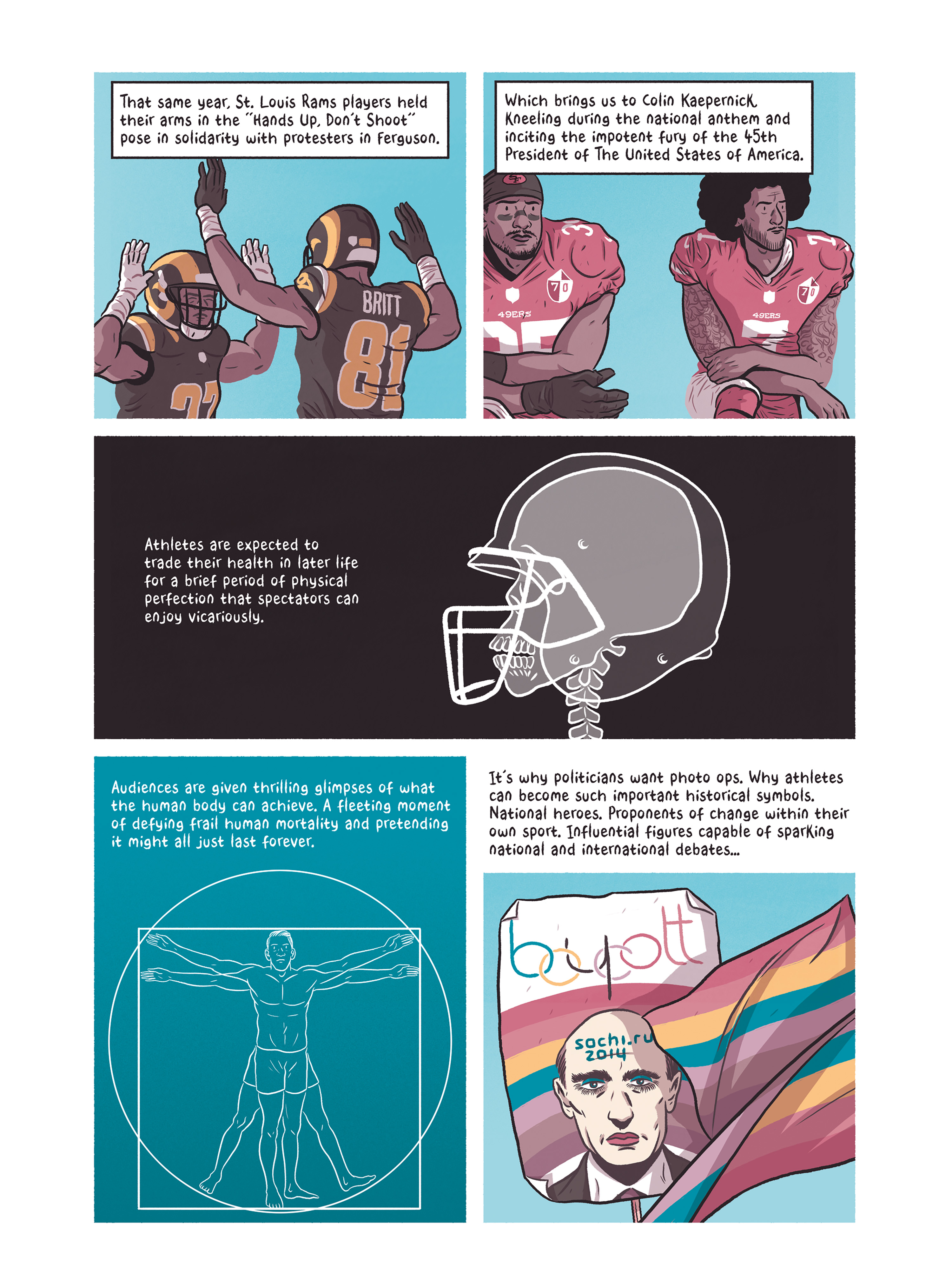
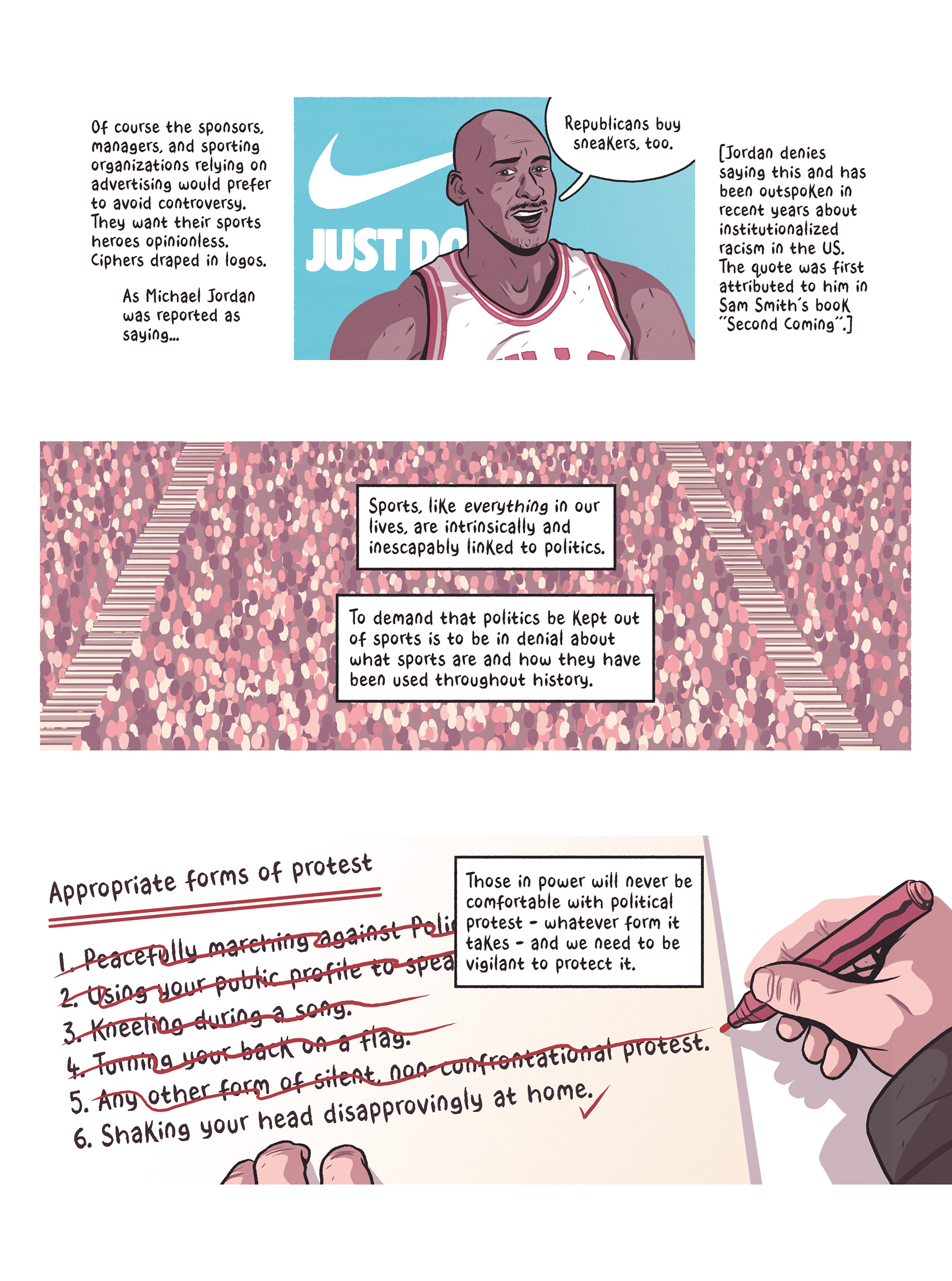
Politics in Sport [Pages 1-8]
I’m both unsurprised and astonished that the topic of politics in sport is perennially brought up as if it’s a legitimate and interesting debate to have. The debate is over. Politics and sport have always been linked.
As has politics and art. No matter who tries to tell us otherwise. There are those who would tell us that protesting a sponsor of a book festival is forcing politics on art, while arguing that the existence of that sponsorship deal did not. To them, the sponsorship was politically neutral. The way things are. People privileged enough to not even recognise a political choice has been made. Is always being made.
But that’s probably a conversation for another time.
